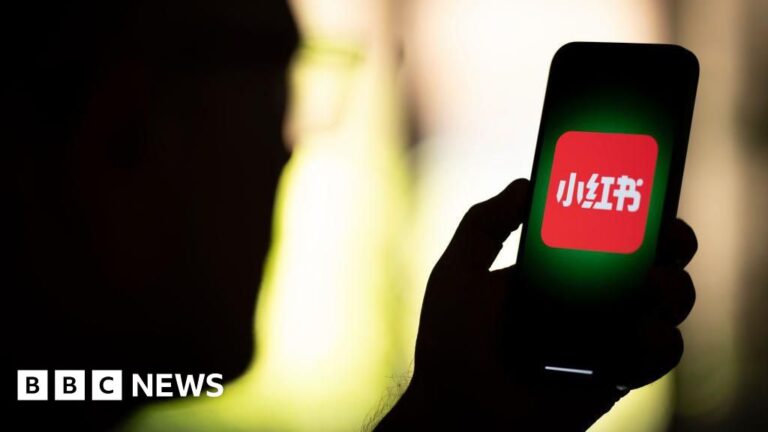TikTok users in the United States are migrating to a Chinese app called RedNote with the threat of a ban within days.
The move by users who call themselves “TikTok refugees” made RedNote the most downloaded app on Apple’s US App Store on Monday.
RedNote is a TikTok competitor popular with young people in China, Taiwan, and other Mandarin-speaking populations.
It has around 300 million monthly users and is like a combination of TikTok and Instagram. It allows users, mainly young urban women, to exchange lifestyle advice, dating and fashion.
Supreme Court justices are expected to rule on a law setting a January 19 deadline for TikTok to sell its U.S. business or face a ban in the country.
TikTok has repeatedly said it will not sell its U.S. business and its lawyers have warned that a ban would violate free speech protections for the platform’s 170 million U.S. users.
Meanwhile, RedNote welcomed its new users with open arms. There are 63,000 posts on the theme of “TikTok Refugee,” where new users learn how to navigate the app and use basic Chinese expressions.
“To our Chinese hosts, thank you for having us – sorry in advance for the chaos,” wrote a new American user.
But like TikTok, there are also reports of censorship on RedNote when it comes to criticism of the Chinese government.
In Taiwan, civil servants are not allowed to use RedNote due to alleged security risks of Chinese software.
As more U.S. users joined RedNote, some Chinese users also jokingly referred to themselves as “Chinese spies,” a reference to U.S. officials’ concerns that TikTok could be used by China as a spying tool and political manipulation.
RedNote’s Chinese name, Xiaohongshu, translates to Little Red Bok, but the app says this is not a reference to Chinese communist leader Mao Zedong’s book of quotes of the same name.
But security concerns haven’t deterred users from flocking to RedNote.
Sarah Fotheringham, a 37-year-old school lunch worker in Utah, says switching to RedNote is a way to “snub” the government.
“I’m just a simple person who lives a simple life,” Ms Fotheringham told the BBC in a RedNote post.
“I don’t have anything that China doesn’t have, and if they want my data that bad, they can have it.”
Marcus Robinson, a fashion designer in Virginia, said he created his RedNote account over the weekend to share his clothing brand and “get a head start.”
Mr Robinson told the BBC he was only “slightly hesitant” to accept the app’s terms and conditions, which were written in Mandarin.
“I couldn’t read them, so that was a little worrying for me,” he said, “but I gave it a shot.”
While a ban won’t make TikTok disappear immediately, it will force app stores to stop offering it — which could ultimately kill it.
But even if TikTok avoids the ban, it could prove powerless against users who turn to alternative platforms.
Some social media users tell the BBC they find themselves scrolling more on RedNote than on TikTok.
“Even if TikTok stays, I will continue to use the platform that I created on RedNote,” Sydney Crawley, a technician from Tennessee, told the BBC.
Ms Crawley said she gained more than 6,000 followers within 24 hours of creating her RedNote account.
“I’m going to continue to try to build a community there and see what new relationships, friendships or opportunities that brings me.”
Ms Fotheringham, a canteen worker, said RedNote “opened my world to China and its people”.
“I can now see things I never would have seen,” she said. “Ordinary Chinese people, learning about their culture, their life, their school, everything, it’s been so much fun.”
So far, the community has been “super welcoming,” said Mr. Robinson, the designer.
“I’m loving RedNote so far…I just need to learn to speak Mandarin!”

